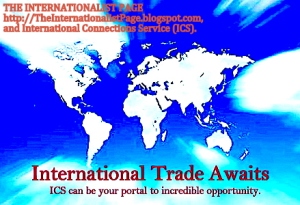The European Union (as well as other amalgamations and organizations comprised of sovereign states) is de-stabilizing because of excessive infighting, blame and recriminations and a lack of understanding of a globalized adaptation and constructive extension of former Nobel Prize_winning Economist Wassily Leontief's notion of input-output analysis.
Accustomed to insularity, each of these constituent states views itself (in solo) as a productive unit, with its own independent wealth-creation potential. The more independent and financially-stable nations view their weaker counterparts as baggage or "freeloaders," instead of taking a broader view and having each member examine its principal areas of productivity and demand vis-a-vis each other state's principal areas of productivity and demand. In essence, this is akin to taking all of the separate pieces of a jigsaw puzzle, and seeing how they most smoothly and sensibly fit together.
This requires some sincere possibility thinking.
If input and output are not the key analytic variables, perhaps there should be a greater assessment of each constituent's relative assets (natural resources, labor force, technology, intellectual property, logistical considerations, skills) versus its relative liabilities viewed in the same manner. Done properly, net suppliers could be paired with net users (in a variety of permutations and combinations) in order to maximize the utilization of each country's assets and productivity with each other nation's liabilities and shortcomings.
Given this picture from a broader view, it requires more than a modicum of trust and integrity as it leads to situation of selective mutualism and strategic co-dependence. But given the right spirit of reciprocity, and the goal of maximizing gross global productivity of our entire civilization, it is the only peaceful means of minimizing hostility and maximizing the benefits to all participants. The sovereign approach to negotiating (i.e., a potential zero-sum game) cannot ever bring either world peace or global prosperity.
Looking at a global economy (or any union of states) as a multicellular organism (with each nation being analogous to a specialized cell), we can create tremendous synergies through some analysis and some finely-tuned economic cooperation -- notice I did not use the word "dependencies."
Very young children tend to be selfish and covetous, but as they grow older, they learn to trade and exchange to obtain what they desire or lack. Every good-faith participant in any exchange or negotiation understands that you often must give something to gain something.
A civilization at the Human species level requires open discussion and a willingness to look beyond and beneath the exoskeleton of inculcated xenophobia in order to advance. More importantly, to survive and thrive.
It might be time for a paradigm shift that runs a bit contrary to the conditioned notions of bullying and blaming.
I remain cautiously optimistic.
Douglas E. Castle for The Internationalist Page Blog
p.s. Please take a look at our many Twitterfeeds and choose several of interest to follow. To get an overview, simple visit The Twitterlinks Hubspot Blog. We cover a large and diverse variety of subjects, and the feeds are rich sources of constantly-updated information.







No comments:
Post a Comment